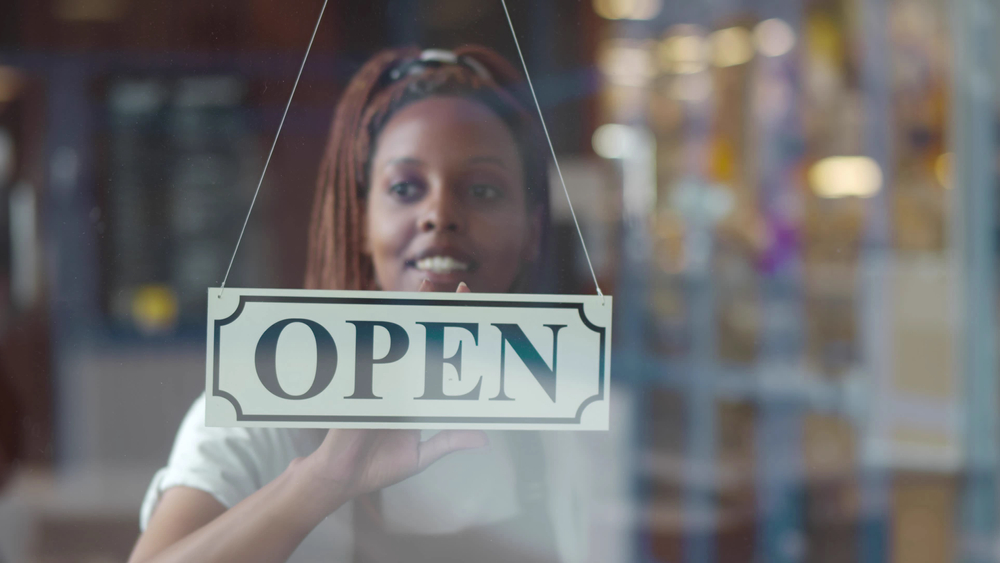In decades past, a villager could walk through town and encounter a host of businesses owned by Black residents of Yellow Springs.
“Over the years, I think there have been upwards of 40 businesses,” said villager Karen McKee.
This summer, the News spoke with McKee, Jalyn Roe and Jocelyn Robinson, longtime Black residents, who shared their memories of the Black-owned businesses their families frequented growing up in Yellow Springs. Memories are often all that’s left of once-thriving businesses owned by Black residents; in 2020, only one Black-owned business operates downtown — The Yellow Springs Toy Company, which Jamie Sharp opened in 2018.
This story relies mainly on memory — of those interviewed and those cited in YS News articles from the past — to construct a timeline of many of the village’s beloved Black-owned businesses.
Memories of Black-owned businesses
Mark Crockett at work in Rita Caz Jewelry in 1986, shortly after the store’s opening. (Photo from the YS News Archives)
Along Dayton Street, there was a shoe repair shop operated by James Johnson, which opened in the 1940s; the business was purchased by William Hawkins in the ’50s and renamed Hawk’s Shoe Repair. The shoe shop held special significance for McKee — her father, renowned former police chief James McKee, worked part-time at Hawk’s while still a student in Springfield.
“My mom used to walk home from school at Bryan High School and pass Hawk’s,” McKee said. “One day my dad was outside the shop while he was working and she walked by — and that’s how they met.”
Also on Dayton Street was Stag’s Cleaners, operated by Jason Stagner. It was one of two cleaners operating in the village at the time; nearby, on Corry Street, there was Joe Holly’s Cleaners, a white-owned business. Jocelyn Robinson said her family tended to patronize Stag’s over Holly’s.
“That’s where we felt comfortable,” she said. “Joe Holly was a cranky old guy — I don’t know if there was some bias there or if he really was just cranky, but I didn’t feel comfortable there.”
Bias wasn’t uncommon in Yellow Springs — famously, Gegner’s Barber Shop refused to accept Black men as customers, ending in a much-publicized demonstration on Xenia Avenue and the closure of the business in 1964. On Dayton Street, however, Black villagers were welcomed into the chairs of Black-owned barber shops and beauty shops.








